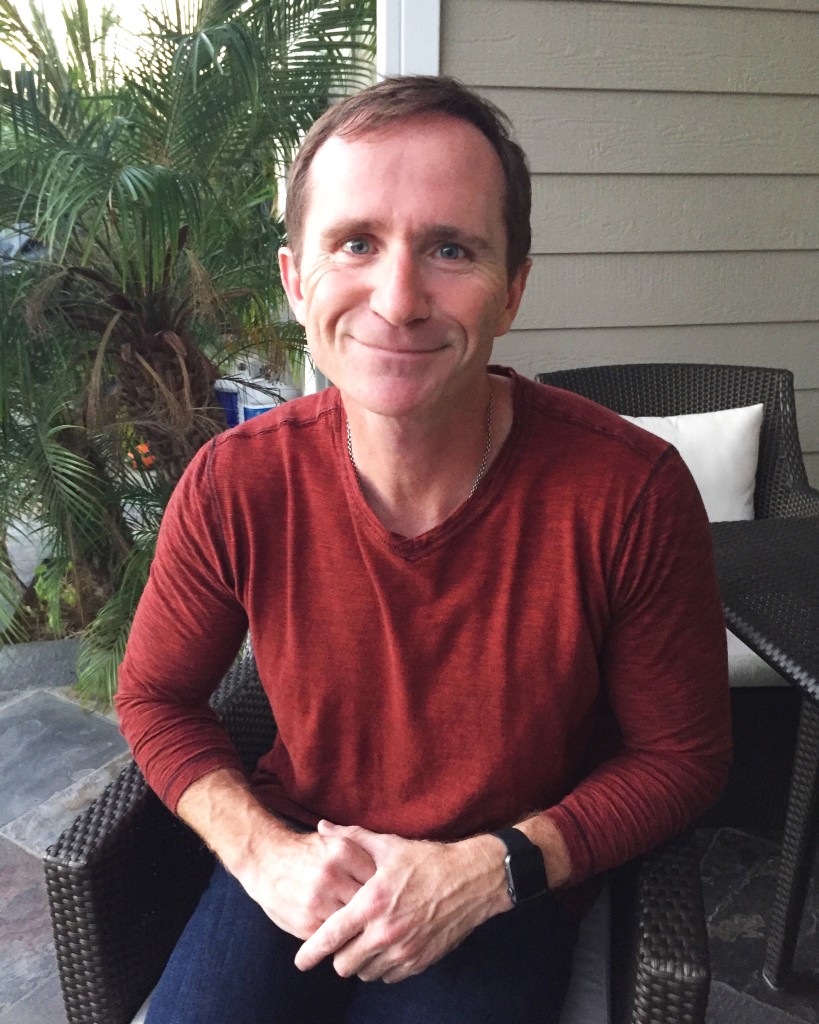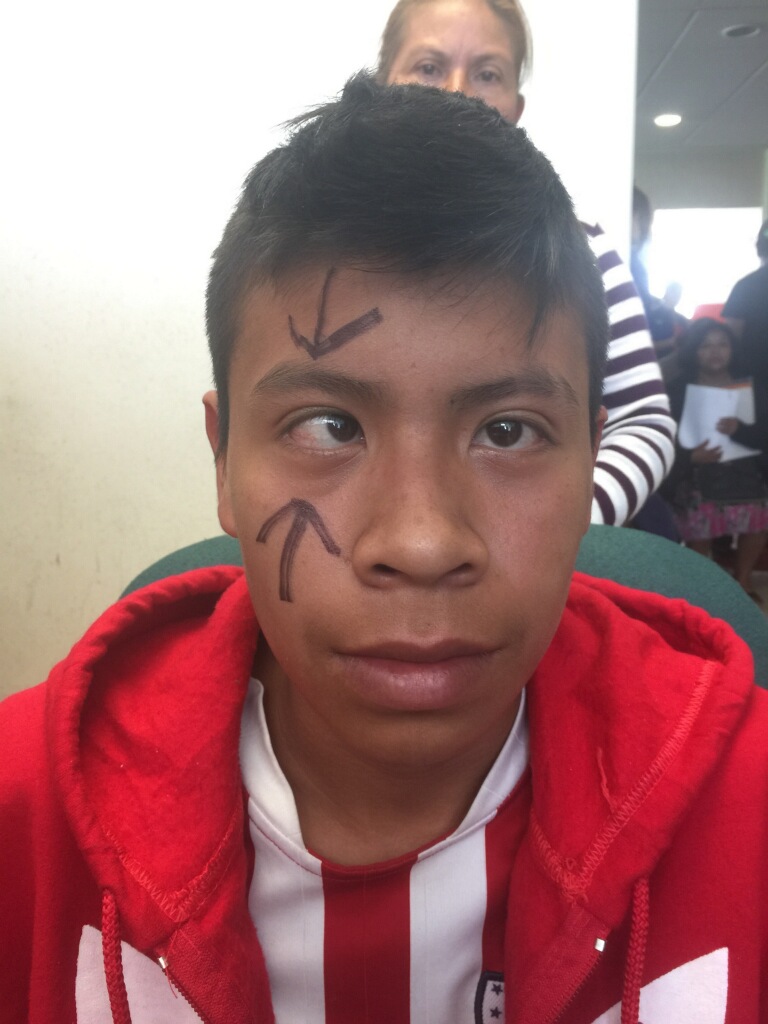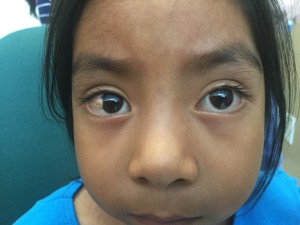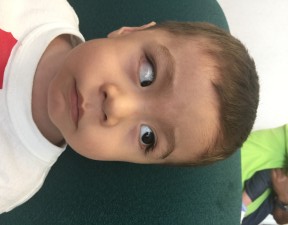
When someone mentions that he just returned from a one week trip to Mexico, chances are, people imagine a relaxing vacation, which includes sitting on the beach, sipping margaritas, and eating delicious Mexican cuisine. Dr. Harry O’Halloran, a resident of Coronado for the last ten and a half years, recently returned from a one week trip to San Cristobal de las Casas in the Central Highlands region of Chiapas, Mexico, where he did anything but rest.
Dr. Harry, as he’s known, is an ophthalmologist, who graduated from Trinity College in Dublin and University of Kentucky College of Medicine. He goes down to Mexico two weeks a year, usually in April and October, to volunteer his services to MOST. MOST, which stands for Mercy Outreach Surgical Team, is a program funded completely by philanthropy that was started by two nurses in 1987 at what is now Scripps Mercy Hospital. For the past 28 years, doctors, nurses, operating room technicians, pharmacists, and other volunteers, pay their own expenses and use their personal vacation days to travel to the interior of Mexico for week-long mission trips, where they spend twelve hour work days volunteering their professional skills. To date MOST has gone on more than 50 mission trips, providing services to the poorest of the poor, who are not required to pay anything.

“I think we should help those who are less fortunate,” says Dr. Harry, adding, “I know it sounds cliché, but we do live a privileged life in California, particularly in Coronado, and then you go not that far down into Mexico, and you deal with extreme poverty. Many of these people live in shacks with no running water and no electricity, and they cook by fire communally around a big campfire.” The people that Dr. Harry and MOST help have almost no access to health care, and if there is health care, they can’t afford to pay it.
Dr. Harry, who has done pro bono work all over the world, including Vietnam, Cambodia, Zimbabwe, and Kenya, was approached by MOST to donate his services as a pediatric ophthalmologist, performing strabismus (cross eyed) and ptosis (droopy eyelid) surgeries. Other specific services Dr. Harry and his ophthalmologist peers provide in Mexico include eye exams, screen exams before operations, and giving glasses to people who otherwise could not afford them. On this most recent trip over 100 pairs of glasses were distributed. According to Dr. Harry, “This year for the first time we actually did diabetic screening and diabetic laser treatment.” Without the diabetic laser treatment, those people would be blind in another year.
Other services provided by MOST, which typically travels with a team of about 45-50 volunteers, include cleft lip and palate repairs, microtia repair, syndactyly surgery, hernia repairs, removal of extra toes and fingers, burn scar and contracture releases, and removal of hairy nevi.

MOST volunteers provide patients with all of their care, all of their post-op medications, and then even provide clothing, and toiletry articles such as toothbrushes, toothpaste, shampoo, soap, and hairbrushes. Young children are given toys, stickers, and candy.
On this most recent trip to Mexico, Dr. Harry, who serves as Chief Medical Officer for the entire organization, was joined by three Coronado anesthesiologists including MOST President, Dr. Kent Diveley, as well as Dr. Robert Adams, and Dr. Daniel Ness. Amy Steiner, another Coronado resident, also went on the trip as a volunteer. 350 surgeries were performed during this trip.
When MOST team members arrive, the people of Mexico “are very happy to see us there” and are “very respectful,” says Dr. Harry. He adds, “The whole place just lights up. We treat them with just genuine respect, and I think we make them feel appreciated as people because down in Mexico a lot of times they’re not regarded because they’re poor.”
It’s been six years since the previous trip to San Cristobal de las Casas, and it might be another six years before MOST travels to that specific location again. People know they can’t afford to miss the opportunity when MOST is in town.
Dr. Harry feels his work in Mexico is meaningful because it’s so close. While he could choose to do pro bono work anywhere in the world, he’s committed to working with MOST because, “It’s a San Diego organization. It’s got a Coronado association and roots. We should try and help our neighbors.”
Dr. Harry is impressed by other MOST volunteers. “They come on these trips, and they work twelve hour days. Some of these guys work two jobs when they’re here in California. They take the week off. They don’t get paid for it. It’s out of their vacation time. I’m more impressed with those people. They take the week off to go to Mexico because they have Hispanic heritage, Mexican roots, and they want to go and help.”
Dr. Harry credits MOST for making it “easy” for him and others to volunteer their services to the roughly 15,000 pro bono MOST surgeries performed over the years. “We have a coordinator who takes care of everything. All you have to do is show up. How can you not?”

Kathy Guevara, who was invited on her first trip with MOST in 1995 as an operating room nurse, became coordinator of the program in 2012. Her role as coordinator is to “make sure that everything goes smoothly for a mission trip from start to finish,” she says. She is responsible for selecting a team, ordering and packing supplies, travel arrangements, hotel accommodations, and communications with the team. She says, “There are many wonderful volunteers who work together and do so much before, during and after to make each mission trip a success.”
According to Ms. Guevara, “The stories of MOST are many: The teenage boy who had his cleft lip repaired, and when he looked in a mirror in the recovery room with tears in his eyes, he said, ‘Now I can kiss a girl.’ The little boy who put his new glasses on, looked at his mother and said, ‘Mommy, you are so beautiful.’ The 12 year old boy who was crying because he was scared before his eye surgery and the 7 year old girl who looked up at him and said, ‘Why are you crying? You are going to have your eyes fixed and nobody will make fun of you anymore,’ which stopped his crying. The mothers who hug the surgeons and with tears in their eyes simply say, ‘Gracias.’”
When asked what one of his most memorable cases in Mexico was, Dr. Harry, who’s performed over 3,000 MOST surgeries, was equally sentimental. “In Morelia, I found a girl who had an eye cancer. It’s a fairly rare cancer of childhood, and we took her eye out. We took a piece of fat from her backside, and put it into her orbit. We then bought her a glass eye to make it look normal, but we saved her life because in another six months that cancer would have invaded into her brain and killed her.”
Dr. Harry feels that the best part of his pro bono work in Mexico is “just to see a job well done.” He says, “Our results are instant. When you give these children back to their parents, you can just see the look of absolute joy on their faces. It’s the coolest thing. You end up in tears. They’re so genuinely grateful, and they hug you.”
Some former patients, who would never be able to pay MOST back for changing their lives, are now paying it forward instead by volunteering with MOST. “Some take a two day bus ride to get where we’re going, and they hang out with us, and work all day long. They work the same hours that everyone else works.”
Dr. Harry’s work with MOST isn’t over once he returns home to Coronado. “I have Mexican friends now who I’ve met down there who call me. I’ve had a Mexican ophthalmologist who I’ve worked with, who stayed with me here in Coronado. Another family that we met down there stayed with us.” For MOST patients who require additional medical needs that aren’t able to be addressed during their week long mission trips, MOST organizes to bring those patients up to San Diego, where there are a network of contacts. Dr. Harry says, “If I can’t provide the service, I’ll get other San Diego physicians or nurses to give their time. Hospitals will donate their operating room time for free.”
When asked how people of Coronado can help MOST, Dr. Harry said that all volunteers, “have to have a value, and you have to be willing to work and be willing to contribute.” MOST operates on about 80 people per day, which, according to Dr. Harry is probably as much as Mercy Hospital and Rady Children’s Hospital does in one day. “Sometimes we bring college students who have a desire to go to nursing school or pharmacy school. If we can give them an opportunity to come and see what it is and get some volunteer hours, we do, but we don’t take many because you have to have a skill, and you have to be able to provide for us.”
For those people interested in helping MOST who do not have any medical skills, Dr. Harry encourages people to look for volunteer opportunities themselves. He says, “It’s a great way to bridge the divide.” People can also send donations to MOST in care of Mercy Hospital in Hillcrest. It’s a 501(c)(3) charity, which is eligible for a tax deduction.
In conclusion Dr. Harry says, “In general people really want to do good work, and I think if you give them the opportunity, it lets the best of people come through. For one week, you really become part of a community. It’s awesome. Share the wealth.”




